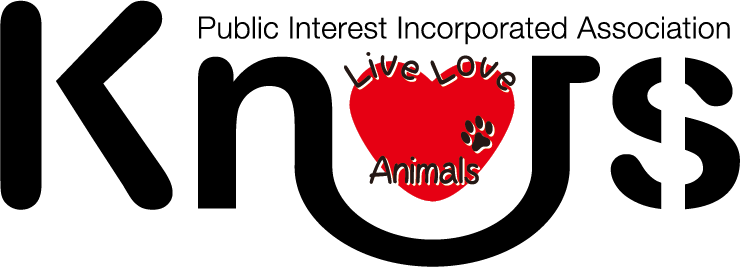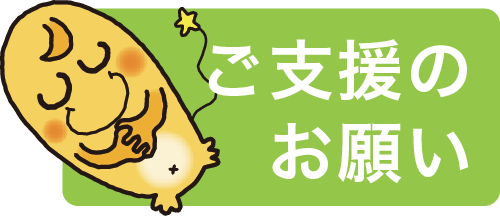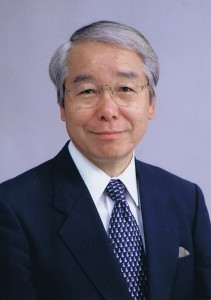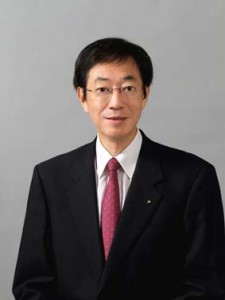
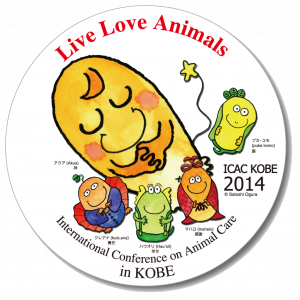
Toshizo IDO
Governor, Hyogo Prefecture
The 3rd International Conference on Animal Care in KOBE 2014 is being held on a grand scale. I extend my most sincere congratulations on this happy occasion and I would like particularly to welcome those of you who have come to Kobe from far off places around Japan, some even from other countries, in order to participate.
Next year marks the 20th anniversary of the Great Hanshin Awaji (Kobe) Earthquake. Following the disaster, the restoration and reconstruction of our region presented a series of first-time challenges, among which were animal rescue activities. The veterinary medical associations and animal welfare groups played central roles, and the establishment of an animal rescue headquarters and development of animal rescue activities within the disaster area developed with widespread community support. In addition, so as to be prepared in future disasters, various related organizations and city governments concluded an agreement for animal rescue in times of disaster.
Based on these experiences, following the Great East Japan Earthquake in 2011, we dispatched specialist personnel to the Tohoku Region and actively supported animal rescue activities in the evacuation zone.
Against the backdrop of growing urbanization plus the trends towards nuclear families, lower birth rates and an aging society, our animals – our dogs in particular – have become irreplaceable as important partners and family members. They are helping people to remain self-supporting and able to participate in society in their roles as guide dogs, service dogs, hearing assistance dogs, etc. But at the same time, there seems to be no end to cases of animal abuse and neglect while, in rural areas, damage to growing crops by wild animals has become a major problem.
In Hyogo Prefecture, we hold animal training classes and develop educational projects such as our scheme for finding foster owners and a ‘contact with animals’ project. The Prefecture has an Animal Welfare Center comprising four branch offices including a new Tajima Branch, due to open this year. In addition, Hyogo is focusing on ‘environmental experience’ classes, activities to restore the wild habitat for storks, and creating buffer zones to separate wild animal habitats and human residential and working areas.
For all these reasons it is highly encouraging to know that we have specialists, involving a strong base of veterinarians, actively discussing ways to further improve animal care and preserve wild animal habitats. So let’s all work together with the aim of building a society in which people, animals and nature can co-exist in harmony.
I sincerely hope that this conference will be a great success and I wish all the participants the very best of health. Thank you.
Mayor, Kobe City
I extend my heartfelt congratulations on the hosting in Kobe once again this year of the Live Love Animals 3rd International Conference on Animal Care. I would like to welcome all of you who have gathered here from all over the world to attend the conference.
Ever since that fateful day in 1995 when the Great Hanshin-Awaji Earthquake caused unprecedented damage to our region, the City of Kobe has steadily proceeded with reconstruction, an effort backed by a huge amount of support from all over Japan and from further afield also. Soon after the quake struck, several veterinary medical associations and animal welfare organizations established the Great Hanshin Earthquake Animal Rescue Headquarters in order to rescue pets and help their owners. They did this regardless of the tremendous earthquake damage they had themselves suffered. Thanks to their extraordinary efforts and dedicated activities, many animals were rescued and many human victims of the disaster gained great encouragement.
Those of us working in the development of Kobe City consider it our mission to widely disseminate, both in Japan and around the world, the experiences and lessons learned from the time of the earthquake, and to pass such information down to future generations so as to prevent their memory from fading.
In creating Kobe as a city for the future, it is extremely meaningful to discuss in depth a theme such as “For the Future of People and Animals”. It is equally meaningful to clarify the kind of efforts we citizens can make, and to adopt a view of a society in which people and animals can live together happily.
Lastly, I would like to express my heartfelt respect to everyone who has contributed to all the hard work in making this conference possible. I sincerely wish for its success as well as for the health and active participation of everybody involved.
Isao KURAUCHI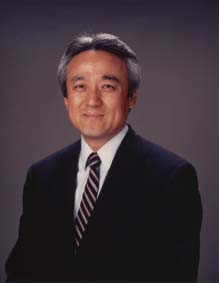
![]()
President, Japan Veterinary Medical Association
Greetings to you all.
The 3rd Kobe Animal Care International Conference (ICAC KOBE) is to be held on July 19th and 20th, 2014 at the Kobe Portopia Hotel. I would like to thank, from the bottom of my heart, all the organizations, corporations and authorities involved as well as all the citizens who have given their support.
The ICAC conference has been held under the theme of ‘responsibility for life’, a subject brought brutally to the foreground by the experiences of the Great Hanshin-Awaji Earthquake. It has been almost 20 years since that terrible disaster and about 3 years since the Great East Japan Earthquake, the more recent tragedy which also claimed too many human and animal lives.
Within the logo of the Japan Veterinary Medical Association (JVMA) there is a phrase ‘We watch lives, we grow lives’. This refers to our wish to make society aware that our duty is not only towards the lives of animals but also for other lives, including human lives. At the same time we are always vigilant, and continuously question ourselves, about the full meaning of our duty.
Similarly, a new “One Health” ideology has been growing in recent years among specialists in the human health, animal health and environment fields to tie-up and cooperate. This has spread globally and, in June 2010, the JVMA also decided on a set of measures under a ‘One Health’ theme at its General Assembly. We have since been channeling this into various projects.
Furthermore, as JVMA President, one area I would like concentrate my efforts on is strengthening relations between the Japan Veterinary Medical Association and the Japan Medical Association. I believe veterinarians and human doctors should cooperate more to combat the diseases common to both humans and animals, etc. so we should be joining the forces of our two associations under the ‘One Health’ ideology.
Specialists from a wide range of fields related to people and other animals, including some from overseas, will gather at this ICAC conference and we can expect to exchange various ideas and thoughts on ‘inochi’ (valuing all life)’. In this sense, ICAC is a realization of the ‘One Health’ ideology. Needless to say, in order to achieve our goals and to share our information effectively, it is very important to also have the participation of the general public as well as this gathering of specialists.
The Japan Veterinary Medical Association looks forward to maintaining close ties with everybody concerned and, with the kind understanding of the public, we hope to continue developing a wide ranging activities under the ‘inochi life theme.
We ask for your continued understanding and generous support.
 President, Japan Medical Association
President, Japan Medical Association
I would like to offer congratulations to the 3rd International Conference on Animal Care in Kobe 2014 and express my gratitude for all the hard work performed by the two Public Interest Incorporated Associations involved, namely, the Japan Veterinary Association and PIAA Knots, as well as the many other people working behind the scenes.
The 1st conference was held back in 2009 with, as I understand, a mission to share the expertise, insights and sense of our ‘responsibility for life’, as gained from the tragic experience of the Hanshin Awaji Great Earthquake (Kobe, 1995). I am pleased to know that on the occasion of this 3rd conference, participants will enjoy 2 days of fruitful discussions under the theme of ‘For the Future of People and Other Animals’.
As globalization advances within our modern society, ideas and issues from different parts of the world can have an impact on a global scale, either directly or indirectly. It is therefore truly significant to hold such an international conference to share problems world-wide.
The discussion and exchange made possible by this conference has the potential to contribute to improving the welfare of animals all around the world including people, and to advancing a peaceful co-existence of humans and other animals.
Mahatma Gandhi once said ‘The greatness of a nation and its moral progress can be judged by the way it treats its animals.’ Therefore in order to firmly establish our country’s reputation, in the eyes of the world, as a morally advanced and truly great country, we sincerely pray that this conference will be held repeatedly and continue to grow into the future.
We at the Japan Medical Association pursue a policy aiming ‘to realize a society in which human dignity is treasured’ and we have made progress in this task from multiple angles. This can be a policy that includes all living things and we will make further efforts towards this.
I would like to end my greetings by wishing the greatest success for this conference and praying for everyone’s good health and prosperity.
Hisashi TATSUTA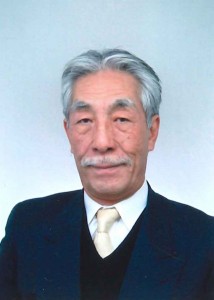
![]()
Director (and Chair), Hyogo Veterinary Medical Association
I am delighted to extend my warmest congratulations on the opening of the 3rd International Conference on Animal Care in KOBE 2014.
While following the daily reports and gaining a clearer picture about the damage caused by the typhoon that hit the Philippines on November 8, 2013, I could not help but think once again about how helpless people are when at the mercy of natural forces.
Needless to say, it is important to always assume that there is a high risk of disaster and take preventive measures as far as possible. We shouldn’t put off making an effort to be prepared.</ span>
When an overwhelming disaster strikes, the support and encouragement that disaster victims receive from people in their own country and from abroad provides them with vital motivation and a driving force towards reconstruction. This same support and encouragement can also save animals. There is no clear borderline between protecting people and animals, on the one hand, and extending a helping hand to disaster victims on the other. We experienced and learned these things from the Great Hanshin-Awaji Earthquake in Kobe.
In the Great East Japan Earthquake disaster of March 2011, the Tohoku Region was exposed to three distinct disasters in the shape of the earthquake itself, the subsequent tsunami and then the nuclear accident. Many animals were rescued from the vicinity around Fukushima Daiichi Nuclear Power Plant, but only after living in an environment contaminated by radioactivity. Sadly, many of these animals are still living in shelters three years after the earthquake and they face an uncertain future.
How can people and animals face the natural disasters that, as we are told, are the result of changes in the Earth’s environment. And, how can we rescue the victims of such disasters?
It is extremely useful for experts working in different specialist fields to be able to exchange opinions and publicize information under the “For the Future of People and Animals” theme. It is my sincere hope that this conference will contribute to creating a society that truly treasures an environment within which people and animals can coexist in harmony – a place where people can enjoy warmer, more enriched lives.
Fumihiko ABE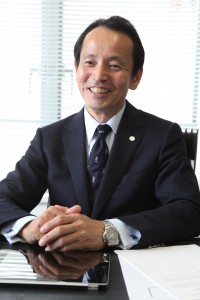
![]()
President, Nestlé Japan Limited Nestlé Purina PetCare
Nestlé Purina PetCare has adopted as its corporate vision the slogan “Your Pet, Our Passion.” We think of pets as being members of the family, and just as with people, we want pets to live long and healthy lives.
Taking care of our pets’ health and having close communication with them also leads to our own better mental well-being as responsible care-givers. In addition, our pets themselves provide us with a great deal of mental support. People begin to enjoy richer lives when they live together with pets. At Nestlé, we want to continue to support pet health and the happy living of pets with their owners.
Nestlé is continuing to develop products tailored to cater to the current pet-oriented environmental trends of miniaturization, extended longevity, obesity and indoor-keeping based on the themes of wellness, high nutrition and health.
At our research facilities, where we keep many cats and dogs, our staff of researchers, veterinarians, ethologists, nutritionists and other professionals are continuously studying and monitoring pet foods and their influence on pet health as well as on nutrient conditions, taste preferences, etc. These efforts aim to develop even higher quality and more highly functional pet foods.
Motivated by the Great Hanshin-Awaji Earthquake (Kobe, 1995), the NPO organization ‘Knots’ began its activities aimed at disseminating throuaghout society the strong ties between people and animals, the huge influence of these ties, and the importance of people and animals coexisting in harmony. Moved by this effort, Nestlé Purina PetCare has been supporting Knots since its early days.
At the International Conference on Animal Care in Kobe 2009, during the Workshop on Nutritional Science for Pet Animals, in addition to discussing the continuing spread of the modern pet “disease” of obesity, one of our nutritionists lectured on the relationship between intestinal health and immune function in pet animals.
The social contribution made by Knots through its various activities is widely recognized, and in 2010 the organization was re-established as a general incorporated association under the name of PIIA (Public Interest Incorporated Association) Knots.
When the unprecedentedly huge disaster struck Japan’s Tohoku Region on March 11, 2011, Knots quickly started up activities aimed at providing support for affected pet owners by launching the “Zutto Issho ni Iyoyo” (Always be Together) Project making use of the experience gained in carrying out animal rescue operations after the Great Hanshin-Awaji Earthquake 16 years previously.
From behind the scenes, Nestlé Purina PetCare would like to continue giving Knots even more support in future.
Yoshio KOSHIMURA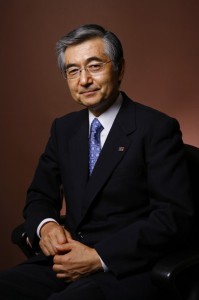
![]()
Chairman of the Japan Pet Food Association
Please accept my sincerest congratulations and my best wishes on the hosting of the 3rd International Conference on Animal Care in KOBE 2014 – For the Future of People and Other Animals. I pray with all my heart that this international conference will be a great success for the Japan Veterinary Medical Association and for PIIA Knots.
I would like to relate something of my personal experience. After working in the pet-related business field for almost 35 years and gaining a wide range of knowledge, I fully understand that there is much we can do to truly realize our coexistence with pets. I hope we can realize a society in which pets receive appropriate care from the time they are born until the time they die. I also wish to build a social system in which people can live with their pets from childhood into old age, and especially, a society in which elderly people can receive appropriate care until they die. Moreover, I would like childhood education to include opportunities for youngsters to directly feel the heartbeat and body temperature of pets, in cooperation with veterinarians and other experts. By doing this children can learn the differences between different animals, make comparisons between animals and people, and appreciate the importance of life in general. If all this ultimately leads to a society that is more compassio
nate and friendly to people and animals alike, this would obviously be a very good thing!
In order to convey how wonderful it can be to live together with pets, our association has compiled a pamphlet with the title “A Happy Life Filled with Smiles Together with Pets”. The pamphlet is promoting the message that pets, (not only cats and dogs but also small birds, small animals and ornamental fish), “contribute to people’s mental and physical health” in a variety of ways. We are actively popularizing and increasing awareness of its contents by distributing copies at many events including the ‘interpets’ fair which is hosted by the Japan Pet Food Association. We have also published an official textbook about pet food and pet manner examinations, an activity we began two years ago. The book includes basic knowledge on pet food and information such as “how to associate with animals” (a responsibility of people who keep animals), and “the utility value of pets in supporting human mental and physical health”.
I believe that what we call “the pet industry” is actually far more than an industry related to companion animals. It is also a health industry that is greatly contributing to the mental and physical health of people because pets are a “medicine for people’s minds”. Pets can also have the effect of reducing the amount people spend on medication. The pet industry is also an education industry through animal-assisted education. There are programs, for example, in which children read books to peaceful dogs, an activity that helps to improve children’s reading capabilities. In addition, when more children live with pets, we are also creating a society in which people become kinder to one another. In this sense, it is no exaggeration to say that the pet industry is ultimately a ‘happiness’ industry. By thinking about this and by strengthening cooperation laterally within the pet industry, as well as with other industries outside the pet field, I think we can open up more possibilities to popularize and build awareness for more diverse and attractive activities.
For example, we should enhance the quality of life of people and pets while cooperating with the housing industry, the car industry, the electricity industry, medical care organizations, educational organizations including schools, and special nursing homes for the elderly, etc. I have become keenly aware of the need to take an integrated approach to these activities together with the authorities.
The Japan Pet Food Association stands ready to continue its activities in line with the aims of this international conference, which is being held for the benefit of people and animals in the future, and to lend our cooperation to future conferences as well.
It is my sincere hope that through this 3rd International Conference on Animal Care, the happier coexistence between people and animals will progress still further and become widely understood by people everywhere.
Lastly, I offer a prayer for the success of the conference and for the continuing growth of the Japan Veterinary Medical Association and PIIA Knots.
Kayoko TOMINAGA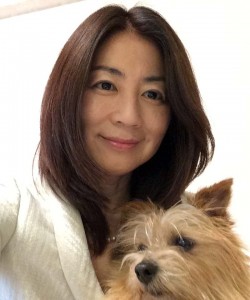
![]()
Board Chairperson, PIIA Knots
ICAC 2014 Thank you Message
~One World, One Life~
I would like to thank you all, from the very bottom of my heart, for the generous support and cooperation you have provided towards ICAC KOBE 2014.
Next year will witness the 20th anniversary of the Great Hanshin Awaji (Kobe) Earthquake. As you know already, this conference was originally started to commemorate the 15th anniversary of the disaster. It set out to force us to recognize the responsibilities we have towards life, and to all lives in their various forms. Each time we hold this conference we see the number of fields that need to be covered expand and expand. This has helped us remember the simple fact that ‘we humans are just another living creature among a huge variety of living creatures existing and sharing the Earth, a single planet on which we all live. Our lives are not so separate, they are intricately joined together’.
The key thought behind ICAC KOBE is that ‘we have a responsibility to ourselves, and to the gift of life we have been given, to live happily and be thankful for each other’s existence’. This conference can reinforce our appreciation that ‘our Earth becomes a more fulfilled and richer planet when the happiness of one individual life is connected to that of another.’
I would like to express this concept in the title words ‘One World, One Life’. We live in a globalized world in which it has been become impossible for us to live without impacting on others. It is my most sincere hope that we can deepen our discussions and play our part in leading people towards a more enriched world and producing more happiness for all living creatures.
